Program Descriptions
Airway Management
Through our Airway Management Fellowship, you will learn all airway techniques, including surgical airway in pediatric, obstetric and adult populations. You will learn from the best: our diverse and experienced faculty are well-known for teaching airway courses and workshops nationally and internationally. You will also be offered many opportunities to develop skills in clinical care, judgment, teaching and research.
You will direct and supervise the clinical care of patients with difficult airways at the QEII Health Sciences Centre and IWK Health, as well as in our simulation centre. Additionally, you will be encouraged and supported to teach airway courses and workshops.
We offer you opportunities to participate in local, national and international teaching forums and to engage in and conduct research studies in clinical and simulated settings. You will also be supported to submit manuscripts and abstracts for publication and scientific meetings.
A Word from the Fellowship Director
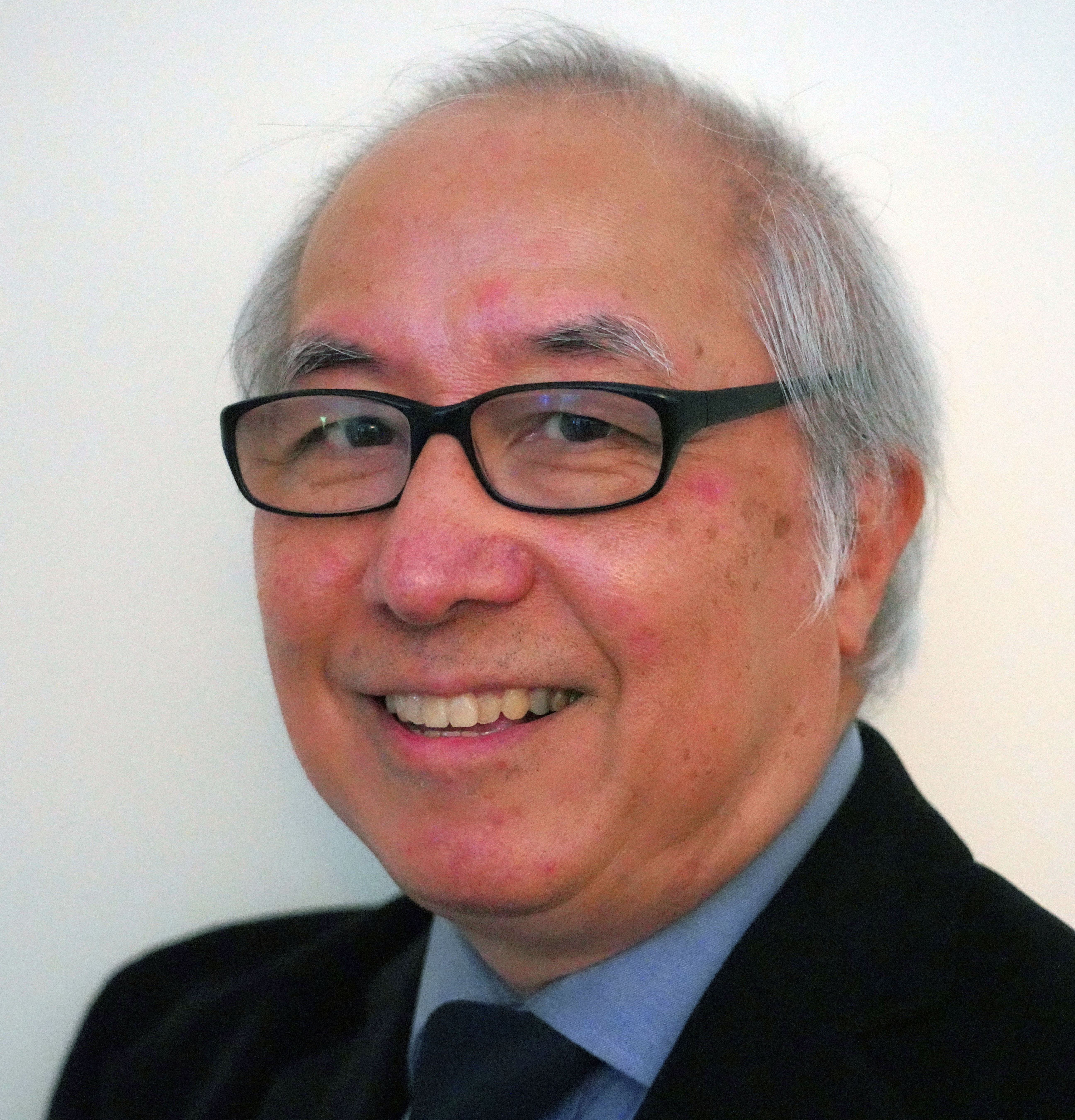 “What I appreciate the most about the Dalhousie Airway Management Fellowship, is something that you’ll be hard-pressed to find elsewhere – it’s global perspective. An airway fellowship at Dalhousie means exposure to anesthesia practices in countries like Rwanda and facilitating international workshops on airway management through our global health efforts. It means reciprocal learning from fellows that join us from places as far-reaching as New Zealand and Singapore. It’s these global perspectives that help provide a holistic lens to the contextual practice of airway management, (how we do things depends on many factors), and that, to me, is invaluable.”
“What I appreciate the most about the Dalhousie Airway Management Fellowship, is something that you’ll be hard-pressed to find elsewhere – it’s global perspective. An airway fellowship at Dalhousie means exposure to anesthesia practices in countries like Rwanda and facilitating international workshops on airway management through our global health efforts. It means reciprocal learning from fellows that join us from places as far-reaching as New Zealand and Singapore. It’s these global perspectives that help provide a holistic lens to the contextual practice of airway management, (how we do things depends on many factors), and that, to me, is invaluable.”
Orlando Hung, MD, FRCPC Fellowship Director
Cardiac Anesthesia and Transesophageal Echocardiography
“I proudly have completed my training in cardiac anesthesia and perioperative echocardiography fellowship program at Dalhousie University. The program offers structured fellow directed learning opportunities. The large volume and diversity of the cases have provided me with outstanding training. In addition, the program has excellent, well-structured, and comprehensive echocardiography training. Faculty mentors were always supportive, approachable, and friendly. Overall, the environment setup by nursing team, faculty and all department members make it one of the best learning experiences.”
Dr. Faisal Alzahrani, Former Cardiac Fellow, 2020.
Our Cardiac Anesthesia and Transesophageal Echocardiography Fellowship offers a competency-based and evidence-based approach. Our objective is to train the fellow in the perioperative care of the adult patient with cardiovascular diseases undergoing cardiac surgery, diagnostic and interventional cardiac procedures, including perioperative transesophageal echocardiography.
As a cardiac anesthesia fellow, you will receive training in perioperative care for the cardiac patient undergoing cardiac surgery, diagnostic and interventional procedures, with an emphasis on perioperative transesophageal echocardiography, blood management and patient safety.
The fellow will complete rotations in the Cardiac Intensive Care Unit Rotation and Advanced Perioperative Transesophageal Echocardiography. Within the program, fellows will gain training in CPD procedures – CABG, single valve, combined CABG and valve, heart transplants, TEEs, major vascular procedures, Pace-maker and ICDs, trans-catheter diagnostic/therapeutic procedures with anesthesia care, and electrophysiology procedures.
The QEII Health Sciences Centre Halifax Infirmary site has four cardiac operating rooms, two hybrid interventional suites, four cath lab rooms, two EP lab rooms, and provides peri-operative echocardiography in all non-cardiac anesthesia and the CVICU. All our echo machines have 3D capabilities.
The fellowship includes completion of a clinical research project for presentation at a major meeting (CSA, ASA, or SCA) or publication in a peer-reviewed journal. Faculty from the Department of Anesthesia and other collaborating departments will serve as mentors, offering expertise in diverse research, academic and clinical areas.
A Word from the Fellowship Director
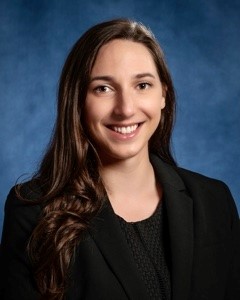 "Dalhousie offers a distinctive cardiac anesthesia training experience in a high-acuity, high-volume centre that cares for much of the Maritime region. Our compact cardiac anesthesia team works closely with our cardiac surgeons, fostering a collegial and supportive environment where fellows are known, mentored, and engaged. With faculty from diverse training pathways and varied stages of practice, fellows gain access to a rich collective knowledge base and a strong focus on enhanced recovery after cardiac surgery. At Dalhousie, you’ll develop expertise in the complexities of cardiac anesthesia while enjoying the welcoming, relaxed lifestyle that defines Canada’s East Coast."
"Dalhousie offers a distinctive cardiac anesthesia training experience in a high-acuity, high-volume centre that cares for much of the Maritime region. Our compact cardiac anesthesia team works closely with our cardiac surgeons, fostering a collegial and supportive environment where fellows are known, mentored, and engaged. With faculty from diverse training pathways and varied stages of practice, fellows gain access to a rich collective knowledge base and a strong focus on enhanced recovery after cardiac surgery. At Dalhousie, you’ll develop expertise in the complexities of cardiac anesthesia while enjoying the welcoming, relaxed lifestyle that defines Canada’s East Coast."
Dr. Anne Hermon, Fellowship Director
Global Health
“I count myself blessed to have been Dalhousie’s first Global Health Anesthesia Fellow. My learning curve was steep, but always in good hands under the guidance, mentorship and friendship of Dr Patty Livingston; and supported by the Global Health office at Dalhousie University. This experience profoundly changed my approach to Global Health Anesthesia. I learned to invest in relationships with local communities; and to train local teachers so that surgical safety is improved in a more effective way than if I provided the anesthesia myself! Putting this into practice with my Rwandan colleagues during a 4 month stay in Kigali gave me an amazing learning environment, and deep friendships which I treasure to this day."
Matthew Ho, Former Global Health Fellow, 2016.
“The global health fellowship at Dalhousie represents a unique opportunity to deeply immerse yourself in this incredibly important facet of medical practice. Dalhousie’s anesthesia department has a wealth of personal and organizational experience in delivery of long-lasting and impactful global health initiatives. During your fellowship, you will engage with established ongoing programs and also have the flexibility to drive projects that align with your personal interests. A global health fellow also benefits from being an integral member of the anaesthesia department at Dalhousie, getting exposure to clinical care in a tertiary Canadian Hospital.”
Adam Mossenson, Former Global Health Fellow, 2018.
This year-long program was one of the first global health fellowships in North America. The Global Health Fellowship prepares candidates with knowledge, skills and attitudes for health education and research, regardless of boundaries. Fellows collaborate with our team to develop a scholarly project of mutual interest. Over the years, staff, residents and fellows in our department have developed an extensive network of collaborators in diverse international settings. We are engaged in ongoing education and research with partners around the world. These relationships pave the way for global health fellows to teach in Rwanda as part of the Canadian Anesthesiologists’ Society International Education Foundation (CAS IEF) program, become part of an ever-expanding team of Vital Anaesthesia Simulation Training (VAST) educators, work with partners on clinical practice improvement initiatives and conduct scholarly research. While much of our work has focussed internationally, we are striving to address global health needs within Canada and are exploring opportunities to collaborate in rural and remote areas of Canada.
The fellowship is highly flexible and tailored to the candidate’s interests. It is possible to focus mainly on clinical service in resource-limited settings, to develop educational tools, to acquire skills as a simulation facilitator, to pair the fellowship with a degree in education or public health, or to conduct relevant research. We are particularly interested in candidates who are lifelong learners and would like global health work and advocacy to be part of their future careers.
A Word from the Fellowship Director
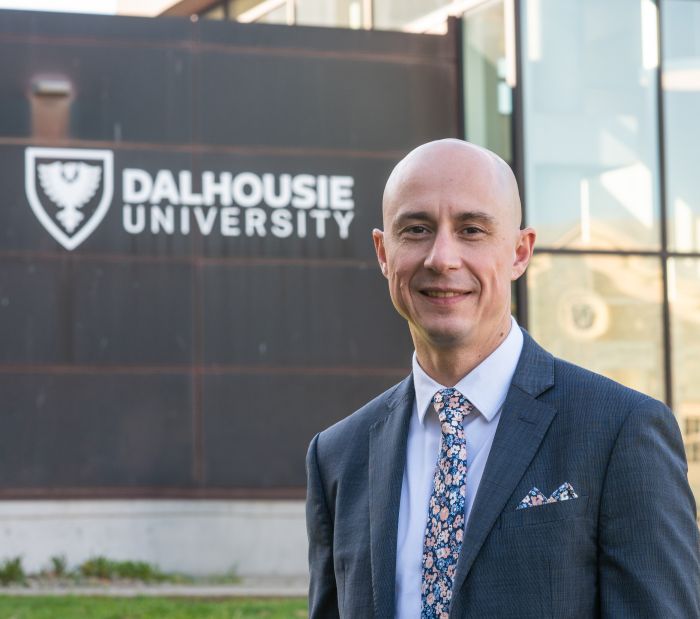 “Working in anesthesia global health is incredibly rewarding. I feel very fortunate and grateful to be connected with colleagues from around the world working in low-resource environments. They are remarkably gifted, optimistic, and enthusiastic individuals who are driven to improve healthcare systems despite many barriers. Because of large healthcare disparities, this work is often difficult while also having enormous potential to improve care and quality of life. After working and teaching alongside colleagues in low-resource environments, I always leave feeling a renewed sense of purpose and gratitude.
“Working in anesthesia global health is incredibly rewarding. I feel very fortunate and grateful to be connected with colleagues from around the world working in low-resource environments. They are remarkably gifted, optimistic, and enthusiastic individuals who are driven to improve healthcare systems despite many barriers. Because of large healthcare disparities, this work is often difficult while also having enormous potential to improve care and quality of life. After working and teaching alongside colleagues in low-resource environments, I always leave feeling a renewed sense of purpose and gratitude.
At Dalhousie, we are honored to have long-term relationships with many partners. This includes organizations such as the University of Rwanda, Rwandan Society of Anesthesiologists (RSA), Canadian Anesthesiologists’ Society International Education Foundation (CASIEF), Vital Anaesthesia Simulation Training (VAST), American Society of Anesthesiologists Committee on Global Health, and others. It also includes many individuals that have become strong personal friends over the years. We welcome qualified candidates who will foster these relationships and grow new projects.”
Dr. Jon Bailey, Fellowship Director - Global Health
Pediatric Anesthesia
As a pediatric anesthesia fellow, you will receive advanced clinical training, teaching and research in a setting that employs a full range of state-of-the-art pediatric and anesthetic services. IWK Health cares for children, youth, women and newborns in Canada’s Maritime provinces and beyond. Affiliated with the Dalhousie University Faculty of Medicine, the IWK is renowned for its world-class research into diseases and disorders affecting children and women and is the primary clinical resource for pediatric and obstetric teaching for health professions in the Maritimes.
The fellowship is one year and emphasizes a solid foundation in community pediatric anesthesia while exposing the fellow to extensive surgical services. The program also offers experience in off-site anesthesia, particularly for interventional cardiology and diagnostic imaging. Major surgical services include craniofacial, neuro, spine/ortho, general, cardiac, urology, ophthalmology, and ENT. Fellows rotate in the PICU for a 4-week block, where they are exposed to a wide variety of medical and post-surgical issues. Fellows also rotate with the IWK’s pediatric acute pain service and multi-disciplinary chronic pain team.
Read more about the fellowship in this brochure.
A Word from the Fellowship Director
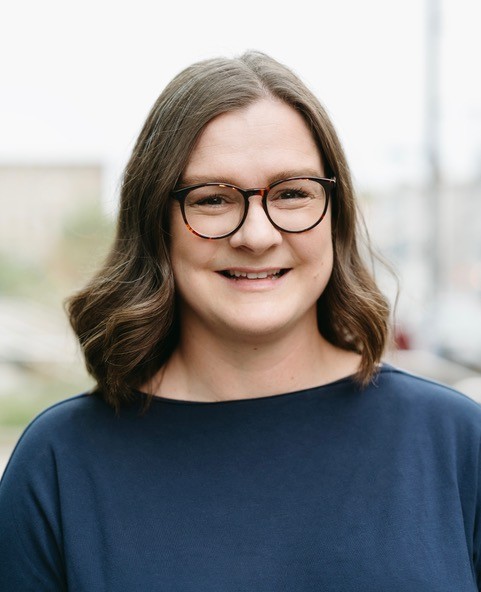 “Pediatric Anesthesia at Dalhousie is a fantastic place to practice and learn. Our department exemplifies the balance of an expert team and a diverse, high-acuity clinical practice. Our staff bring global training and research innovation to deliver exceptional care. The incorporation of independently run fellow lists all within our department allows for a consolidation of pediatric skills. Our small size allows for flexibility and self directed opportunities throughout the program.”
“Pediatric Anesthesia at Dalhousie is a fantastic place to practice and learn. Our department exemplifies the balance of an expert team and a diverse, high-acuity clinical practice. Our staff bring global training and research innovation to deliver exceptional care. The incorporation of independently run fellow lists all within our department allows for a consolidation of pediatric skills. Our small size allows for flexibility and self directed opportunities throughout the program.”
Dr. Margaret Hanley, MD, FRCPC, Fellowship Director
Quality Improvement and Patient Safety
Duration: 1 year
Start Date: July 2024
Salary: per current PGY6 level contract
Location: QEII Health Sciences Centre - Primarily the Halifax Infirmary and Victoria General Hospital Sites
Projected Clinical Time Requirement: 100 days working independently in operating room (average 2 days/week) no call
Academic Protected Time: 3 days/week, 3 days conference leave, vacation - 4 weeks (Clinical/academic time are subject to confirmation at time of offer)
Fellowship Director: Dr. A. Milne
Other Collaborating QI Staff: Drs. G. Dobson, D. MacDonald, and V. Sweet
Minimum Educational Requirements: MD or equivalent and eligibility for independent clinical anesthesia practice in Nova Scotia. See Dalhousie University Anesthesia Fellowship website for eligibility details: https://medicine.dal.ca/departments/department-sites/anesthesia/education/fellowship-programs/program-eligibility.html
Introduction: The Dalhousie Department of Anesthesiology, Pain Management and Perioperative Medicine offers a 1-year fellowship program in quality improvement and patient safety (QI/PS). This fellowship will involve both independent clinical experience in the operating room and protected academic time. During the academic time fellows will complete mandatory QI/PS courses, prepare educational QI/PS sessions for the residents, facilitate one departmental Morbidity and Mortality rounds, and participate in ad hoc hospital QI review and perioperative QI committees. Fellows will also be responsible for presenting a QI/PS topic at the Departmental Grand rounds and organize a QI/PS related journal club for the department. During the 12-month period the fellow must complete 2 QI/PS projects, present their QI research data at the Anesthesia department research day and submit a manuscript for publication in an acceptable medical journal.
A. Fellowship Course Requirements:
- TCPS2 – Core 2022 Certificate - Tri-Council Policy Statement: Ethical Conduct for Research Involving Humans
- CMPA E-learning Modules
- Negligence and civil liability
- Privacy and confidentiality
- Medical letters, forms and reports
- Speaking up
- Disclosing harm from healthcare delivery
- Anatomy of a lawsuit
- Informed discharge
- Informed consent
- Delegation and supervision
- Documentation
- Institute for Healthcare Improvement (IHI) - Basic Certificate in Quality and Safety (Minimum of 13 online Modules)
B. Fellowship Educational/Teaching Requirements
Preparation and delivery of a QI/PS teaching session to the residents and medical students in accordance with the CANMeds Framework. Potential to co-author QI/PS projects being done by residents for their residency research requirements.
C. Fellowship Research and QI/PS Project Requirements
The fellow will be expected to complete at least 2 QI/PS projects during the 12-month period. Suitable project topics can be aligned with the fellow’s interests, in discussion their supervising staff. If research ethics board approval is required for their project, the fellow will be responsible for drafting a submission to the hospital research ethics board. Fellows will be required to present their project results at a suitable QI/PS conference such as the IHI or Canadian Anesthesia Society and must complete a publication ready manuscript from at least one project.
Potential areas/data sources for research projects include analysis of events from our AIMS system (Innovian electronic anesthesia intra-operative monitoring system) which contains data for 30000+ anesthetic cases/year or the hospital safety information management system (SIMS), optimization of care pathways in the operating/recovery rooms or through the perioperative clinic in conjunction with the Perioperative Director – Dr. D. Macdonald. There may also be potential for collaboration with our Simulation Group depending on the nature of the project. One QI/PS project can be retrospective in design, the other should be prospective and include QI/QA techniques such as PDSA.
D. Other QI/PS Requirements
The fellow will present a self-selected QI/PS topic at the weekly departmental Grand Rounds (1 hour presentation) or organize and facilitate 1 QI/PS journal club for the department.
The QI/PS fellow will also help to organize and facilitate one of the Departmental Morbidity & Mortality rounds.
The fellow will perform a complete audit of an adverse safety event using typical QI/PS techniques (e.g. 5 whys/root cause analysis, fishbone/driver diagrams, process mapping, FMEA and change management). This event can be taken from M&M rounds or another suitable event managed by our QI/PS office.
To expand the fellow’s experience within hospital QI/PS committees, the fellow will attend weekly hospital interdisciplinary perioperative quality committee meetings (1 hour every Tuesday) and the quarterly Anesthesia Department Clinical Advisory Meetings. They may also be asked to join internal hospital QI reviews of perioperative or critical care events.
E. Suggested References and Hyperlinks:
- L. Provost and S. Murray. The Health Care Data Guide: Learning from Data for Improvement. 2011. First Edition. ISBN 978-0-470-90258-5.
- TCPS 2: CORE-2022 (tcps2core.ca)
- CMPA - Accredited eLearning for physicians and healthcare professionals (cmpa-acpm.ca)
- IHI Open School Home | IHI - Institute for Healthcare Improvement
- https://www.apsf.org
- Fellowship Programs - Department of Anesthesia, Pain Management & Perioperative Medicine - Dalhousie University
A Word from the Fellowship Director
“We are excited to offer a new 1-year fellowship in Quality Improvement and Patient Safety (QIPS) here at Dalhousie University starting in July 2024. Our Anesthesia Department has a strong reputation for teaching, research, collegiality as well as a longstanding presence within the Canadian Anesthesiologists’ Society Quality and Patient Safety Committee and Standards Development Committee. The QIPS fellowship will provide an opportunity to learn about various quality improvement techniques and provide the opportunity for implementation of QI initiatives within the perioperative setting. There will be potential for collaborative QIPS projects with our perioperative blood management team, acute pain service, pre-operative assessment clinic and simulation group. After completion of the fellowship, your skills and training will enable you to establish a career in QIPS at your own health center.” Andrew Milne, MD, MSc, FRCPC, Fellowship Director
Regional Anesthesia and Acute Pain (2026 position filled - accepting for 2027)
As a regional anesthesia and acute pain fellow, you will work and learn in a supportive and well-equipped environment, developing skills in peripheral and central neural blockade in the context of modern, integrated multimodal pain management. You will have many opportunities to develop skills in clinical care, judgment, teaching and research.
You will also gain experience in:
- Single-shot blocks;
- Indwelling catheter techniques; and
- Ultrasound and traditional approaches.
You will be based primarily in the dedicated block room at the Halifax Infirmary (HI) site of the QEII Health Sciences Centre, and will also work with the Acute Pain Service. In addition to spending three out of five days per week in the block room, you will provide anesthesia care in such related areas as orthopaedic, plastic and vascular surgery.
As part of your fellowship, you will design, initiate and perform at least one research project with the goal of publication and/or presentation at a recognized anesthesia or regional anesthesia meeting. To support this work, we allocate non-clinical time and provide mentors for clinical, education and research goals and projects. You will also participate in departmental teaching activities and will be encouraged to attend academic conferences to further develop your skills.
A Word from the Fellowship Director
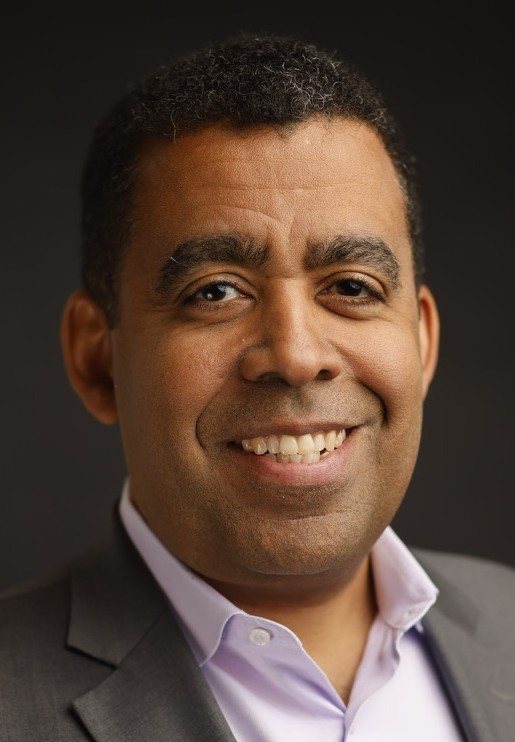 “The one-year Regional Anesthesia and Acute Pain Fellowship in Dalhousie University offers a comprehensive experience for dedicated candidates. This unique program provides a platform for our fellows to hone their skills, expand their knowledge, and emerge as leaders in the field of regional anesthesia and acute pain management.
“The one-year Regional Anesthesia and Acute Pain Fellowship in Dalhousie University offers a comprehensive experience for dedicated candidates. This unique program provides a platform for our fellows to hone their skills, expand their knowledge, and emerge as leaders in the field of regional anesthesia and acute pain management.
Our facilities at the Queen Elizabeth II Sciences Centre in Halifax offer a diverse range of opportunities for our fellows to gain experience in a variety of techniques, from peripheral to neuraxial blocks, including the use of peripheral catheters. Alongside this, fellows can also expect to work and learn in a vibrant research environment, and share their expertise with residents through didactic sessions, clinical teaching, and small group seminars.
Graduating fellows are well-equipped to take on leadership roles in regional anesthesia and acute pain management. Our team is looking forward to working with dedicated candidates with a passion for regional anesthesia who are eager to elevate their career in medicine and make a positive impact in patient care and research.”
Kwesi Kwofie, MD, FRCPC, Fellowship Director
Women’s and Obstetric Anesthesia
As a fellow in women’s and obstetric anesthesia, you will receive advanced clinical training, teaching and research in a setting that employs a full range of state-of-the-art obstetric and anesthetic services. As a tertiary care hospital that delivers more than 5,000 babies per year, the IWK Health Centre (IWK) provides an interesting and challenging case mix that ensures exposure to all varieties of high-risk obstetric patients, as well as ample clinical exposure to normal pregnancies. You will also have many opportunities to develop skills in clinical judgment, teaching and research.
You will provide anesthesia care for:
- A range of obstetric cases;
- Non-obstetric surgery during pregnancy;
- Non-operative diagnostic and interventional procedures requiring anesthesia; and
- Assisted reproductive technologies.
You will design and perform, with appropriate support, at least one research project or quality assurance exercise. We allocate non-clinical time and provide mentors for clinical, education and research goals and projects.
A Word from the Fellowship Director
 “The Obstetrical Anesthesia Fellowship offers advanced clinical training, teaching and research in a setting with a full range of state-of-the-art obstetric and anesthetic services. As a tertiary care hospital that delivers more than 5,000 babies annually, the IWK provides interesting and challenging cases that ensures exposure to high-risk and normal pregnancies. Fellows will provide anesthesia care for a range of obstetric cases, non-obstetric surgery during pregnancy, interventional procedures requiring anesthesia, and assisted reproductive technologies. The program is structured to provide non-clinical time, mentors, and opportunities to develop skills in clinical care and judgment, teaching, and research.”
“The Obstetrical Anesthesia Fellowship offers advanced clinical training, teaching and research in a setting with a full range of state-of-the-art obstetric and anesthetic services. As a tertiary care hospital that delivers more than 5,000 babies annually, the IWK provides interesting and challenging cases that ensures exposure to high-risk and normal pregnancies. Fellows will provide anesthesia care for a range of obstetric cases, non-obstetric surgery during pregnancy, interventional procedures requiring anesthesia, and assisted reproductive technologies. The program is structured to provide non-clinical time, mentors, and opportunities to develop skills in clinical care and judgment, teaching, and research.”
Patricia Doyle, MD, FRCPC, Fellowship Director
doylepa@dal.ca
